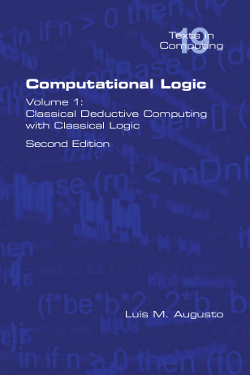 | Computational Logic: Volume 1
Classical Deductive Computing with Classical Logic. Third Edition
Luis M. Augusto
Although a number of recent technological applications require classical deductive computation with non-classical logics, many key technologies still do well—or exclusively, for that matter—with classical logic. In this first of a two-volume work, we elaborate on classical deductive computing with classical logic. The objective of the main text is to provide the reader with a thorough elaboration on both classical computing—a.k.a. formal languages and automata theory—and classical deduction with the classical first-order predicate calculus with a view to computational implementations, namely in automated theorem proving and logic programming.
As a complement to the mathematical-based exposition of the topics we offer the reader a very large selection of exercises. This selection aims at not only practice of discussed material, but also creative approaches to problems, for both discussed and novel contents, as well as at research into further relevant topics.
The present third edition improves on the previous ones by providing
an altogether more algorithmic approach: There is now a wholly new
section on algorithms and there are in total fourteen clearly isolated
algorithms designed in pseudo-code. Other improvements are, for
instance, an emphasis on functions in Chapter 1 and more exercises
with Turing machines.
14 January 2020
978-1-84890-280-0
|

